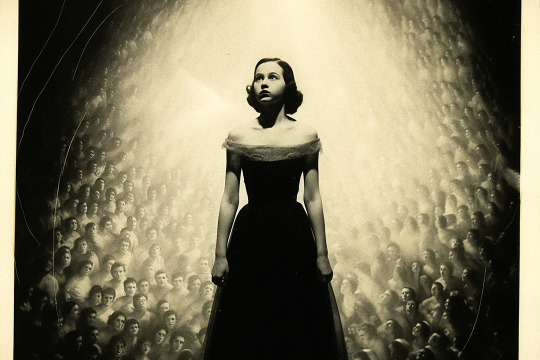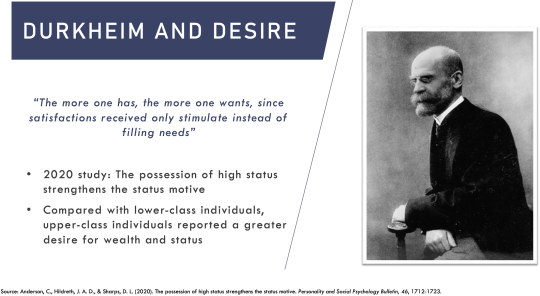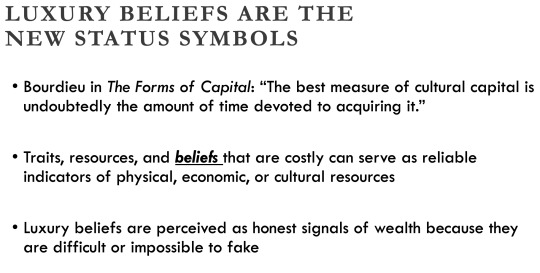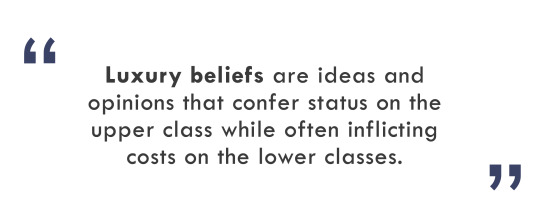#french sociologist
Text
Amidst the ups and downs of life, and yes even death, beauty.
Eric Jeng (@ericj3ng) • Photos et vidéos Instagram
Many thanks to Alan for his poetic and philosophical sharing🙏💕🌺
"Contemplating nature and allowing ourselves to be overwhelmed by the sense of wonder that beauty brings out in us is an experience that sometimes literally transports us out of ourselves. Are we even aware that this beauty is everywhere?" Frédéric Lenoir
6 notes
·
View notes
Text
Social man...is the masterpiece of existence.
Émile Durkheim, from Suicide: A Study in Sociology, 1897
#emile durkeim#existentialism#french psychologis#suicide#french sociologist#psychothérapie#psychoanalysis#literary text#books and libraries#world literature#quotes#dark academic aesthetic#classic art lit#existential thoughts
18 notes
·
View notes
Text
I still believe in miracles!
I still believe in miracles!
“Je préfère me débarrasser des faux enchantements pour pouvoir m’émerveiller des vrais miracles.“
Pierre Félix Bourdieu, Pierre Bourdieu (1930 – 2002), est un sociologue et intellectuel français considéré aujourd’hui comme l’un des plus importants sociologues du XXe siècle. Son ouvrage La Distinction est considéré comme l’un des dix plus importants travaux en sociologie du siècle par…

View On WordPress
2 notes
·
View notes
Text
The struggle between "this is a really good idea for some homebrew mechanics and my need for instant gratification means I want to share it immediately" versus "I should probably actually experience this game from a player-facing point of view before trying to design power sets for it."
(This is about Changeling, I have two Contracts that originated from the Wilmington setting I've written. One is from the Court of Breath, which are a group of Changelings who've organized under a Strix, the other is the Contract of the Phial which is. Well. (: Let's just say my persistent obsession with Jacques Ellul plays into it.)
#razolutions#the other issue is I don't have a full set of four common +four royal yet#i'm two short on both#sorry to mal who constantly has to deal with my love letters to an obscure french sociologist and lay theologian#and anyone who has to read my academic work
3 notes
·
View notes
Text
[“Poverty is embarrassing, shame inducing. Misery (misère), the French sociologist Eugène Buret once remarked, “is poverty felt morally.”
You feel it in the degradation rituals of the welfare office, where you are made to wait half a day for a ten-minute appointment with a caseworker who seems annoyed you showed up. You feel it when you go home to an apartment with cracked windows and cupboards full of cockroaches, an infestation the landlord blames on you. You feel it in how effortlessly poor people are omitted from movies and television shows and popular music and children’s books, erasures reminding you of your own irrelevance to wider society. You may begin to believe, in the quieter moments, the lies told about you. You avoid public places—parks, beaches, shopping districts, sporting arenas—knowing they weren’t built for you.
Poverty might consume your life, but it’s rarely embraced as an identity. It’s more socially acceptable today to disclose a mental illness than to tell someone you’re broke. When politicians propose antipoverty legislation, they say it will help “the middle class.” When social movement organizers mobilize for higher wages or housing justice, they announce that they are fighting on behalf of “working people” or “families” or “tenants” or “the many.” When the poor take to the streets, it’s usually not under the banner of poverty. There is no flag for poor rights, after all.
Poverty is diminished life and personhood. It changes how you think and prevents you from realizing your full potential. It shrinks the mental energy you can dedicate to decisions, forcing you to focus on the latest stressor—an overdue gas bill, a lost job—at the expense of everything else. When someone is shot dead, the children who live on that block perform much worse on cognitive tests in the days following the murder. The violence captures their minds. Time passes, and the effect fades until someone else is dropped.
Poverty can cause anyone to make decisions that look ill-advised and even downright stupid to those of us unbothered by scarcity. Have you ever sat in a hospital waiting room, watching the clock and praying for good news? You are there, locked on the present emergency, next to which all other concerns and responsibilities feel (and are) trivial. That experience is something like living in poverty. Behavioral scientists Sendhil Mullainathan and Eldar Shafir call this “the bandwidth tax.” “Being poor,” they write, “reduces a person’s cognitive capacity more than going a full night without sleep.” When we are preoccupied by poverty, “we have less mind to give to the rest of life.” Poverty does not just deprive people of security and comfort; it siphons off their brainpower, too.”]
matthew desmond, from poverty: by america, 2023
2K notes
·
View notes
Text
On transandrophobia and the concept of co-substantiality
I refrained from talking on this topic as it's not a debate in my french leftist circles but seeing how it's prevalent here on tumblr, I think it's a good opportunity to talk about some concepts.
First of all, on a linguistic note, people people create words to suit their needs. The etymology doesn't matter : if transandrophobia is created to description "the specific oppression that trans men suffer", it does not imply that mysandry exists. It's an opression specific to an identity.
This bring me to a critique of some interpretation of intersectionalty. That it would only be intersection of oppressions. As you can't be oppress as a man, there is no intersection between being a man and being trans (so no need to use a different word than general transphobia).
This interpretation is honestly baffling. I'll take an example that I think everybody will agree on : Black men are more often arrested by police (or killed, or put in prison...) than white people because of the racial integral state. But also more than black women, why is that, how can we explain that this police brutality is more harsh on black men ? The same reason as the stereotypes saying that black men are more violent, criminal... This is a specific oppression for black men (who may choose to create a word to describe it).
This is not to say that black men are more opressed than black women. There are differences on the kind of racism that they suffer. Intersectionality is not the addition of oppression, it is used to describe specific interactions of class, race and gender and the social relations associated with them. (even if in general men oppress women, everything depend on the social relations)
(If you'd like to delve deeper into the subject, I suggest you read up theories on subaltern masculinities.)
There are still a lot of critics of intersectionality to do. As a materialist, I prefer the notion of co-substantiality of the social relations (CSSR) (coined by Danièle Kergoat, french sociologist).
A social relation is a antagonistic relation between two social groups around an issue. it's a relation of material and ideal production.
Social relations are co-substantial : they form a knot that cannot be cut at the level of social practices (except from an analytical sociology perspective) and they are co-extensif : when deployed, the social relations of class, gender and race reproduce and co-produce with each other.
CSSR doesn't naturalized the categories for example : "workers and woman" are part of gender and class relations. Sometimes in the struggle, they can form a collectif subject, original in its practices, but a subject always in process and not reductible to that category.
This is the main issue with intersectionality "mapping the margins" this means fixing the categories, naturalizing them. This concept struggles to reflect a shifting and historical relation of domination.
Multiplicity of categories hide the social relations. But we cannot separate social categories and social relations where they were made. Working with those categories is risking to leave blind spot. Spots that can be the strongest aspects of domination, just as they can be bearers of resistance.
Co-substantiality is the complex dynamic interweaving of all social relations; each leaving its mark on the others, modulating each other, building each other up in a reciprocal way; the fact that they form a system does not exclude contradictions between them.
Refusing to reason in terms of fixed entities allows us to put the political subject (and not just the victims of domination) back at the center of analysis, taking into account all its ambivalent and often ambiguous practices.
210 notes
·
View notes
Text
The Origin & Evolution of Correspondences in Witchcraft
This post was shared a week early over on my Patreon! Working a day-job and running a blog full-time is a ton of work, so any support is insanely appreciated! Patrons will receive early access to content, exclusive content such as research notes and book recommendations, free tarot readings, access to a private Discord channel within my server, discounted products from my Etsy store, free digital files, voting power on my content, and MUCH more! Check it out here for as little as $2/month.
If you’ve been a witch for a while, you’ve probably asked yourself: where do correspondences come from? Who decided that lavender was good for calming, or that obsidian was good for absorbing negative energy? Where does the concept of correspondences come from in the first place? To answer these questions, we must first look at something called “correlative thinking”: Marcel Granet (1884-1940), a French sociologist, coined the term “correlative thinking”, which can be defined as “thinking of an item of one class by correlating it with an item of another class”, typically organizing and relating “natural, political/social, and cosmological data in highly ordered arrays or systems of correspondence.” Sound familiar?
Correlative thinking takes many forms throughout religion, philosophy, and humanity – even showing up as early as Mesopotamia, where they believed events on earth ran parallel to events in heaven: “each city-state had its own patron god and every change in the balance of power between the city-states was seen as the direct reflection of a change in the relationship of the gods.” (Cavendish, pg. 12) In ancient Greece and among Hellenic philosophers, they came up with the “macrocosm/microcosm” analogy, which describes the relationship between the smaller, human being (the microcosm) with the much bigger, seemingly infinite cosmos (the macrocosm).
This correlative thinking is prevalent in many magical texts throughout the years – including The Emerald Tablet (late 8th-early 9th century), The Picatrix (a 9th century Arabic grimoire), The Key of Solomon (1312), and the Three Books of Occult Philosophy (1533). After the publication of The Three Books of Occult Philosophy and the boom of new-age spiritualism in the 1970s, there have been a massive number of publications related to witchcraft, correspondences, ritual magic, and more. For the purpose of this post, however, we’ll be focusing on these foundational texts to better understand the evolution and origin of correspondences.
The Emerald Tablet, dated around the late 8th-early 9th century, is one of the most highly influential texts within the philosophical and occult realm. An English translation of a line of text within The Emerald Tablet provides one of the most popular terms among new agers and modern pagans: “That which is above is like to that which is below, and that which is below is like to that which is above”. A shortened version of this phrase, “as above, so below”, can be found in Helena Blavatsky’s work, Isis Unveiled (1877), where it became massively popularized among the modern pagan community. This phrase, along with terms related to correlative thinking, tie back to many cultures – including China, India, and more.
The Picatrix, 9th-century Arabic grimoire on astrological magic, is yet another influential piece of text. This text contained astrological magic, magical potions and spells, and different Hermetic, Neoplatonic, and Aristotelianism philosophical passages – and it also included the explanations of links between planets and intangible objects such as colors and perfumes/fragrances.
After a few series of translations in the 12th and 13th centuries, the information within the Picatrix (and other sources) were recorded and arranged by Henry Cornelius Agrippa (1486-1535) in his work, Three Books of Occult Philosophy in 1509 (not being published until 1533). From there, Dr. John Dee (1527-1604) expanded on Agrippa’s work in the 1580s and 1590s.
Shortly after, in 1620, the Magical Calendar was published, which compressed much of the previous material. This calendar, amazingly recorded on one page, “contains tables of correspondences arranged by number, from one to twelve. The material is based largely on the extensive tables in Agrippa, book II, but goes beyond this, especially in its inclusion of sigils.” (Skinner, pg. 14)
Moving onto another incredibly influential text, The Signature of All Things, published by Jakob Bohme in 1764, covers a similar concept to correlative thinking known as ‘the doctrine of signatures’: God created everything on Earth with a “signature”, or sign, that tells you what that object’s purpose is. The idea is that any plant, herb, or object on earth should resemble what it’s purpose is – for example, walnuts (which look like brains) are used for brain health, and tomatoes (which are red, plump, and contain ventricles like the human heart) are used for heart health. Obviously, this concept was adopted in the context of medicinal use – by looking up an object’s signature within this book, a physician could theoretically find treatments for specific illnesses. While the contents of this book (and similar texts) have been debunked as pseudoscience, the influence of the doctrine of signatures is prevalent in witchcraft correspondences today.
In 1888, the Hermetic Order of the Golden Dawn was founded, and during that time S L MacGregor Mathers (1954-1918) and Dr. Wynn Wescott (1845-1925) prepared knowledge lectures for the Order, which eventually led to the generation of a Book of Correspondences (unpublished). According to Adam McLean in his edition of The Magical Calendar, this book circulated among members of the inner order of the Hermetic Order of the Golden Dawn, and was later published by Aleister Crowley as his own work, Liber 777 (1909). Meanwhile, in 1908, The Kybalion (an anonymously written text, though often attributed to William W. Atkinson [1862-1932]) was published, including topics like “The Principle of Correspondence” and “The Planes of Correspondence”.
From here on, we have an uproar in magical texts, thanks to the new-age/spiritualism movement of the 70s and 80s – popular authors like Gerald Gardner, Scott Cunningham, Ray Buckland, and many others published works on the subject of magic, often including their own correspondences, typically influenced or inspired by the works of Crowley, Mathers, and Atkinson. Of course, the contents of these modern texts are what is most recognizable to practitioners today – we usually find tables of information, relating astrological signs, herbs, planets, feelings, colors, and more to their “meanings”: protection, anti-stress, happiness, love, etc.
As it stands, correspondences are a by-product of the ‘correlative thinking’ concept we covered earlier – this correlative thinking shows up in Mesopotamia, and evolved throughout magical texts and grimoires, eventually becoming these “tables of magical correspondences” that we are familiar with seeing in modern witchcraft and pagan books and resources.
As I round off this post, I want to share a quote from Richard Cavendish in his book, The Black Arts: “Man is a tiny replica of the universe. If two things are naturally associated together in the human mind, which is an image of the ‘mind’ of the universe, this is evidence of a real connection between the two things in the universe. Many of the important magical analogies and connections are not natural to most people’s minds today, but have been handed down by tradition from the remote past. This enhances their value for occultists, who believe that humanity was a great deal wiser in these matters in the remote past than it is now.” As practitioners, particularly modern practitioners, I feel we put too much emphasis on older concepts and traditions. While there’s nothing necessarily wrong with sticking to traditions and building off of older magical systems, I think it’s just as important that we work on our own magical systems – what does the color red mean to you? What about the planet Jupiter? Find out what works for you – you may find that it makes you feel more connected to your craft and your practice, and your workings could become more powerful, too.

Sources/Further Reading:
Dictionary of Gnosis & Western Esotericism by Wouter Hanegraaff
Three Books of Occult Philosophy by Heinrich Cornelius Agrippa
The Signature of All Things by Jakob Bohme
The Black Arts by Richard Cavendish
A History of Magic, Witchcraft and the Occult by DK
The Complete Magician’s Tables by Stephen Skinner
Neurobiology, Layered Texts, and Correlative Cosmologies: A Cross-Cultural Framework for Premodern History by Farmer et al
https://youtu.be/p0z3MuuB9uc
https://youtu.be/gYSGSjU84vE
https://www.youtube.com/watch?v=gx1av438mLY
https://www.patheos.com/blogs/matauryn/2018/06/03/magickal-correspondences/
https://howardchoy.wordpress.com/tag/correlative-thinking/
https://www.researchgate.net/figure/An-abstract-diagram-meant-to-illustrate-the-perfectly-correlative-structure-of-the_fig4_237249544
https://swedenborg.com/emanuel-swedenborg/explore/correspondences/
#correspondences#thevirginwitch#witchcraft#witchcraft 101#witchcraft 102#witchcraft 201#witches#witches of tumblr#pagan#beginner witch#witch history#reading materials#witch#magic#grimoire#book of shadows#astrology#astrological magic#astrological#planetary magic
200 notes
·
View notes
Text










Collective memories
You may have come across Semioticapocalypse, a blog I started—frightening to consider how long ago it was, — that became essentially the origin of the «Collective Memories» (CM). Both Semioticapocalypse and the CM project emerged primarily from my longstanding love for black-and-white photography, which later evolved into an interest in its history and theory. Secondly, thу new enterprise owes much to the staggering and mesmerizing impact that the Cambrian explosion in the world of generative models has had (and continues to have) on me, particularly when it comes to diffusion models, generating images visual or textual inputs as well as from various combinations of thereof.
The term "collective memory" denotes the aggregate of memories, knowledge, and data that a social group holds, which is intrinsically linked to the group's identity. The term "collective memory" in English and its French counterpart "la mémoire collective" emerged in the latter half of the 19th century. Maurice Halbwachs, a philosopher and sociologist, further developed this concept in his 1925 work, «Les cadres sociaux de la mémoire» (eng. text). Both expansive and intimate social collectives can create, disseminate, and inherit collective memory.
Contrary to the term "collective memory," which is somewhat ambiguously defined yet generally accepted, the notion of "collective memories" is inherently problematic. Memories are the results of the individual acts of recollection, making the idea of "collective memories" paradoxical. Сontemporary diffusion models utilize vast amounts of often unidentified data, including historical and personal old photographs, vintage postcards, and other kinds of publicly circulating images. These models may be seen as involved in the prompts-driven singular acts of remembrance, producing images that paradoxically represent "collective memories," something otherwise unfeasible and ultimately, non-existent.
The visual works published here and elsewhere on this blog were created using Midjourney. Each of them comes as the result of finding optimal (for lack of a better world) combined text/image prompt through exhaustive search a. k. a. generate-and-test method; the process is apparently as labor-intensive as it is time-consuming. The major part of the works belongs within the "Collective Memories" framework. In addition to visuals there will be eventually / hopefully a p2p publication or two.
Past works that align with the CM project in terms of both concept and style, even if not published as such, can be found on Behance. Then there's Instagram (crowв there is kind of thin but I'm set on daily updates). Last but not least, there are sporadic posts on Facebook, in designated groups only, — primarily 'MJ Official' (weekly or so) and another nice one here (occasionally). In case you would like (for whatever reason) to buy NFT or two, it can be arranged via Makers Place: drop me a line.
#midjourney#ai#ai art#ai generated#generative#generative art#retro style#neurophotography#promptography#disturbing#weird#hybrids#collective memories#memory studies#surreal#public history#vintage style
120 notes
·
View notes
Text
some studies in revolution
Hello! This is a sideblog dedicated to history and theory of revolutions: what they are, how they're made, what happens when they succeed and fail. It is probably going to be made up of analysis and quotes and is intended to kind of "keep me honest" about doing some actual intellectual work in the midst of life's drudgery. I also think that my grounding in revolutionary theory is personally inadequate and I want to correct that.
To start out, it's been a long time since I was actively reading academic history, and I learn history best from listening and taking notes; only reading makes it less "sticky" in my memory. So I'm initially going to use Mike Duncan's Revolutions podcast as a means of marking my progress and giving some focus to the project, as well as providing a baseline to build notes on which can then be supplemented through more rigorous academic histories.
In tandem with each subject, I plan to read some primary and secondary sources, including relevant writings in revolutionary theory (both from revolutionaries, i.e. Lenin/Fanon/Robespierre/etc., and from academic sociologists or historians, i.e. Skocpol, Barrington Moore, Eric Wolf). Eventually I'll run out of Duncan, so if anyone has other similar podcasts or some lecture series that they think would be useful - especially for historical events after the Russian Revolution - please let me know! Reading recs are also always welcome.
As far as what I'm hoping to cover, I'm going to do something non-chronological and relatively free-form. I definitely want to cover the following:
English Civil War
French Revolution
Haitian Revolution
Mexican Revolution
Russian Revolution(s)
Chinese Revolution
Cuban Revolution
Algerian War of Independence
Iranian Revolution
This is definitely passing over some notable ones but I'm not foreclosing coverage of any particular thing by way of making this list, just kind of giving an indicator of where I'm at right now. I also have some historical interests I'd like to spend more time learning and talking about, like certain Roman revolts (Catiline did nothing wrong) and the German Peasants' War. So maybe after France or Haiti I'll get a wild hair to do a write-up on Thomas Muntzer, or Easter Rising, or Spanish anarchism. I want my focus to mainly be on the seizure of power, and what was done with power once seized, but I'd also like to explore failures, losses, and short-term experiments. I'm most likely going to start with the French Revolution and then possibly double back to the English Civil War when I have some time, and then we'll just see what happens. I will also probably not be doing a ton of military history though I won't avoid it where relevant; it's frequently just not enjoyable for me to talk about in detail. Very much approaching these things from the social/political history angle as much as I can.
If you choose to follow along with this personal project, please feel free to chime in as I hope this can lead to some interesting conversations with other people who care about topics like political radicalism, comparative history, political theory, etc. Who knows what life will bring, but I'm hoping that I'll be able to keep this going for a while.
I may also change the name but I needed something and I thought this was funny.
41 notes
·
View notes
Text

Butch/femme: Inside Lesbian Gender. edited by Sally Munt, Cherry Smyth
ID under read more
Image shows part of the book Butch/femme: Inside Lesbian Gender. In said image there is text and there is a picture of a young child (representing the author as she wonders whether she has always been butch or if she became butch). Text in the image reads:
"Butch/femme can enable saying what we want without necessarily speaking. Still, butch/femme has been conceptualized as a form of speech, and a mode of movement, as a way of taking up space in a queer way. Less often the conversation is shifted onto erotic ground, where butch/femme concerns desire, about loving, wanting, and having sex, about creating sex, about communicating how to be sexual. Butch/femme produces a way of looking and being looked at; it is visual, tactile and oral, it is a scent, maybe even a taste, and it is about being open to listen, to recognize and receive. Butch/femme is lesbian gender experienced from the inside, it is a mode of articulation and a living movement, it is the way our bodies speak our desires. In short, butch/femme is a way we can inhabit lesbian desire, a habitus. Habitus, which is French sociologist Pierre Bourdieu’s formulation, is the practice of everyday life, particularly as it is found in the body. For Bordieu the body is a kind of mnemonic device upon which culture is habitually inscribed."
27 notes
·
View notes
Text

• The term occult sciences was used in the 16th century to refer to astrology, alchemy, and natural magic, which today are considered pseudosciences. The term occultism emerged in 19th-century France, where it came to be associated with various French esoteric groups connected to Éliphas Lévi and Papus, and in 1875 was introduced into the English language by the esotericist Helena Blavatsky.
• The occult, in the broadest sense, is a category of supernatural beliefs and practices which generally fall outside the scope of religion and science, encompassing such phenomena involving otherworldly agency as mysticism, spirituality, and magic.
• Modern uses for the term has been a substantivized adjective. The occult is now a term that has been particularly widely used among journalists and sociologists. This term was popularized by the publication of Colin Wilson's 1971 book The Occult. The term has been used as an "intellectual waste-basket" into which a wide array of beliefs and practices have been placed because they do not fit readily into the categories of religion or science. According to Hanegraaff, the occult is a category into which gets placed a range of beliefs from spirits or fairies to parapsychological experiments, from UFO-abductions to Oriental mysticism, from vampire legends to channeling, and so on.
#discord#occultist#occultism#paganism#witch#witch community#pagan#witches#witchblr#witchcraft#magick#practitioner
16 notes
·
View notes
Text
[...]
A long time ago, while conducting research for my master’s thesis on how the economic reforms of [French President] Emmanuel Macron had closed the circle started by [François] Mitterrand, I came to realize that the old Thatcherite idea, “There is no society, only individuals with the freedom of choice,” had become so commonly accepted in contemporary society that both right– and left-wing neoliberals today feel no need to emphasize it.
Social surveys have also found a shocking lack of empathy and solidarity among communities in the U.S. and Western Europe, exactly at the time the dominant political narratives have begun to insist on inclusiveness and tolerance toward others. Subtle distinctions in definitions can often reveal commonly understood and yet unspoken differences between terms that we prefer to use: Inclusiveness does not necessary oblige solidarity or empathy, just as tolerance in the absolute sense means merely withholding action based on existing animosities, which are acknowledged by the very need for the usage of the term in question. Tolerance, indeed, does not have to mean understanding and accepting increasingly distant “others.”
A question must be asked: Are we now, through ideological terminology, searching for exactly those things that we are in fact missing in our social reality? The need to define ideological terms prompts this question in that it arises only when certain notions have left the sphere of unspoken social consensus—the very frame of political and social thought.
In his latest book, The exiled terms, Todor Kuljić, who is among the most internationally recognized Serbian sociologists of the previous and current century, explains how four decades of neoliberal reforms have influenced significant changes in the language we use to discuss ideology and politics, noting that all the terms previously connected to class inequalities, Marxist ideologies, and collective struggles of the working class have been systematically replaced with less critical, less “communist sounding” terms.
In sociology curricula, the terms “exploitation,” “revolution,” and even “humanism” have been almost completely forsaken, while we can see increased usage of words such as “transition,” “transformation,” and “social exclusion.” The term “transition,” a case in point, normalises poverty and corruption in countries that need to be convinced that they will be much better off when they adopt neoliberal economic models.
The famous comedian George Carlin put forward a notion that there is a cultural tradition in the United States of constantly inventing new terms, and “exiling” the old-fashioned terms, which derives from the constant need to make the brutalities of everyday life more easily accommodated. “Americans have trouble facing the truth,” Carlin once said, “so they invent a kind of soft language to protect themselves from it.” If poor people used to live in slums, to cite one of Carlin’s standup routines, “now ‘the economically disadvantaged’ occupy ‘substandard housing’ in ‘inner cities.’”
Anthropological studies have shown that this tendency has certain connections with the totemistic belief of the earliest human societies that, by changing the way we verbally identify a certain aspect of reality we can change the reality itself. It appears that this has never been more relevant than in the case of the modern culture of political correctness, which proposes that we accept social problems as consequences of our subconscious thoughts and/or individual actions, and try to solve them by changing the language we use to define them—while never searching for their material causes.
Professor Jordan Peterson has claimed that modern-day political culture developed in a manner in which the previously presumed need for objectivity was replaced with subjective feelings and perceptions, while the very understanding of material reality has been, through relativization, reduced to little more than an inconvenience that can be regulated by state legislation and group stigmatization. On the other hand, Slavoj Žižek holds that it is precisely the abandonment of the collective (ideas) for the individual (interests) that has led our increasingly globalized political culture down this path. The neoliberal, postmodern left has merely followed the neoliberal right of the eighties in the project of eliminating undesirable terminology related to physical, class, and social reality—depending on the preference of each—from the common frames of political debate, since a consensus on understanding material reality is the first and necessary condition of the collective political struggle.
Žižek also claims that the phenomenon of New Age leftists striving toward zealous political correctness merely contributes to depriving formal and informal human relationships of what is the very essence of humanity. This is because following the increasingly strict standards of Newspeak, as Orwell would put it, necessarily increases the distance between people by making them focus on their differences, thus continuously reinforcing the same barriers neoliberal leftists wish to break free of, while, at the same time, leaving them unable to overcome the tensions of every-day interactions through humor and other forms of releasing the burdening contents of the individual and collective subconscious.
Further, if we take into account the previously mentioned thesis of Professor Kuljić, we can also propose the question: To what extent is the modern neoliberal leftist obsession with political correctness a consequence of the absence of a language and terminology by which young people could articulate the actual causes of their fear and anger and the need to express political radicalism? Of course, leftists of this persuasion remain thoroughly within the existing frame of the globally dominant ideology and never challenge the economic and political system.
At the same time, neoliberal right-wing policies continue to insist on the previously discussed narrative of personal responsibility—or, rather, personal “guilt”—not for the problems of cultural inequalities, which their leftist counterparts remain unable to relate to their actual causes in material reality, but rather for the position of the individual in the new economic order. Now in social media we witness the rise of an entire generation of young conservatives who present success and failure in life—mostly defined by the acquisition of wealth rather than personal happiness—as a consequence of individual decisions and actions, entirely decontextualized and removed from one’s personal circumstances, class background, and social context.
Unlike the previous authors of the self-help books from the early eighties, these new “life coaches” of the internet are heavily engaged in the relativization of ethics, with some going as far as to conclude that those who stay employed in times of low wages and worsening labor conditions, instead of risking their financial existence with private business gambles, have no one but themselves to blame for being exploited. Thus, in a perverted sense of logical framing, they arrive very close to an argument used by ancient Greek philosophers to justify slavery: “An Athenian would rather kill himself than become a slave.”
Neoliberal leftists legitimize the unfair treatment of others for personal gain with the condition that you address respectfully the same people whom you are exploiting—and, as well, disregard solidarity as the core value of the left. Contrarily, the neoliberal right wing insists that participation in the hierarchy of social and economic power is a goal necessary to achieve and a matter of personal choice, and not at all of social reality. It is as though they, the neoliberal right wing, have forgotten with how much effort traditional conservatives tried to uphold the principles of ethics—even if many of those principles were not part of the initial humanist–Enlightenment agenda, or universal values as Immanuel Kant would define them, but served only to preserve position and ensure reproduction of the upper classes—as though there truly was no society anymore.
Not even the Prussian militarists of the old German Empire ever went so far as to assert openly that there is no common good, not even a universal moral code, and that, rather, you should seek to enrich yourself at the expense of others just to prove your own capabilities to a society you don’t even believe in anymore. But modern-day conservatives have crossed this line by seducing today’s ever more fearful youth with the promises that, if they prove capable enough, they can assume the role of the oppressor themselves and exploit the weak, who deserve their fate for failing to seize the “boundless opportunities” of some neoliberal economic paradise.
Thus, prevalent neoliberal left– and right-wing ideologies have not just disregarded, fragmented, or redefined traditionally universalist principles of ethics; they have also forsaken many “core values”—an emphasis on collective solidarity or personal liberty, common wellbeing, or individual morality—which defined the differences between the significant left– and right-wing ideologies of the previous two centuries. Even more important, humanity has been almost completely exiled from the sphere of ideological priorities—in favor of politically correct formality in the case of the New Age left, or, in the case of the New Age right, in favor of a convenient indifference to social problems. The value of humanity, in the sense in which it was understood during the course of the 20th century, will therefore have a hard time finding its way back into the ideological frames of the new world order.
Luka Filipović, among the youngest Serbians ever to earn his doctorate, holds a Ph.D. awarded by the Faculty of Philosophy at the University of Belgrade. He has published numerous articles regarding the history of labor movements, communist parties, neoliberal economic reforms, and political turmoil of the late 20th century in Europe and Serbia. His book, Eurokomunizam i Jugoslavija 1968-1980,(Eurocommunism and Yugoslavia 1968–1980), is published this month by the Institute for Contemporary History in Belgrade, where Filipović currently conducts his research.
19 notes
·
View notes
Text
It's super infuriating that everyone has such a knee jerk violent reaction to "taboo" matters because then they can never be researched and nothing can ever progress. Last year I read an interview in La déferlante with a french sociologist looking into incestual children, which, it turns out, are extremely commonplace in incestual families, and to her knowledge she was the only person to ever fucking look that up ! Because it's taboo ! But how can you hope to understand how incest is constructed and engrained without people and family without studying how it touches and influence every member of the family ? How can you hope to protect, heal, and rehabilitate people from incestual family if you stop at "incest is terrible and everyone committing it ever should die a painful death" ? You can't address systemic issues by slapping your hands over your ears as strong as you can and kicking the people within the system whatever their position and history. Yes these are difficult, traumatizing and trauma-linked matters, that put everyone in an emotionally tense situation, and I actually think that makes it all the more important to actually look at them and see how we can improve the situation instead of continually feeding people into the torment nexus and hope it will just solve itself.
Anyways, children aren't exempt from exacting sexual violence on others so if your stance is "kill every child molester forever" you also have a lot of kids to murder.
12 notes
·
View notes
Text
By: Rob Henderson
Published: Jun 12, 2022
Let’s start with a question: What do top hats and “defund the police” have in common?

Before we explore it, I’ll very briefly tell you about my unusual background.
Currently, I’m a doctoral candidate in psychology at Cambridge and a faculty fellow at the University of Austin. And before this, I studied psychology at Yale as an undergraduate.
But before entering these universities, my life was a lot different.
I was born into poverty and grew up in foster homes in Los Angeles and all around California. I fled as soon as I could at age 17, enlisting in the military right after high school.

I then attended Yale on the GI Bill. That was a very different environment for me.
At Yale, there are more students from families in the top 1 percent of the income scale than from the entire bottom 60 percent.

Throughout my experiences traveling along the class ladder, I made a discovery:
Luxury beliefs have, to a large extent, replaced luxury goods.
Luxury beliefs are ideas and opinions that confer status on the upper class, while often inflicting costs on the lower classes.
In 1899, the economist and sociologist Thorstein Veblen published a book called The Theory of the Leisure Class.
Drawing on observations about social class in the late nineteenth century, Veblen’s key idea is that because we can’t be certain about the financial status of other people, a good way to size up their means is to see whether they can afford expensive goods and leisurely activities.
This explains why status symbols are so difficult to obtain and costly to purchase.
In Veblen’s day, people exhibited their status with delicate and restrictive clothing like tuxedos, top hats, and evening gowns, or by partaking in time-consuming activities like golf or beagling.
These goods and leisurely activities could only be purchased or performed by people who did not work as manual laborers and could spend their time and money learning something with no practical utility.
Veblen even goes so far as to say, “The chief use of servants is the evidence they afford of the master’s ability to pay.” For Veblen, butlers are status symbols, too.

In short, his idea was about how economic capital was often converted into cultural capital.
These findings were later echoed by the renowned French sociologist Pierre Bourdieu in his 1979 book Distinction: A Social Critique of the Judgment of Taste.
In his body of work, Bourdieu described how “distance from necessity” characterized the affluent classes. In fact, Bourdieu coined the term “cultural capital.”
Once our basic physical and material needs are met, people can then spend more time cultivating what Bourdieu called the “dispositions of mind and body” in the form of intricate and expensive tastes and habits that the upper classes use to obtain distinction.

Corresponding with these sociological observations, the biologist Amotz Zahavi proposed that animals evolve certain displays, traits, and behaviors because they are so physically costly.
Many people are familiar with the example of the peacock’s tail. Only a healthy bird is capable of growing such plumage while managing to evade predators.
A lesser known example is the behavior of the African gazelle.
When these animals spot a predator, the healthy adult gazelles often engage in what is called “stotting.” They repeatedly jump as high as they can, springing vertically into the air with all four feet raised.

The signal this sends to predators is essentially: “I’m so fit that I can afford to expend valuable energy to show you how strong and robust I am compared with the other gazelles.” The predators then direct their attention to less lively and energetic targets.
So for humans, top hats and designer handbags are costly signals of economic capacities; for gazelles, stotting is a costly signal of physical capacities.
Veblen, Bourdieu and Zahavi all claimed that humans—or animals—flaunt certain symbols, communicate in specific ways, and adopt costly means of expressing themselves, in order to obtain distinction from the masses.
Animals do this physically.
And affluent humans often do it economically and culturally, with their status symbols.
A difference, though, is that human signals often trickle to the rest of society, which weakens the power of the signal. Once a signal is adopted by the masses, the affluent abandon it.
There are historical examples of this.
For example, in the middle ages, spices were expensive and only the elites could afford them. It was a hard-to-fake signal of one’s social rank and economic resources.
But as Europeans colonized India and the Americas, the cost of spices dropped, and the masses were now able to obtain them.
As a result of widespread use, spices were no longer a status symbol.

Elites decided they were vulgar, and during the reign of France’s Louis XIV, court chefs banned sugar and spice from all meals except for desserts.
Here’s another example.
In the U.S., dueling was practiced primarily by the elite for many years.
One key reason why it fell out of fashion in the early nineteenth century is because this ritual of dueling was gradually adopted by the lower classes.
In response, the upper classes abandoned it because it was no longer prestigious. And then it was outlawed in the late nineteenth century.

The yearning for distinction is the key motive here.
And in order to convert economic capital into cultural capital, it must be publicly visible.
But distinction encompasses not only clothing or food or rituals. It also extends to ideas and beliefs and causes.
In his book WASPS: The Splendors and Miseries of an American Aristocracy, the author Michael Knox Beran examined the lives and habits of upper-class Americans from the mid-nineteenth to the mid-twentieth century.
He writes that “WASPS” had mixed feelings about their fellow citizens.

These upper-crust Americans viewed ordinary Americans as “sunk in moronic darkness” and that “It is a question whether a high WASP ever supported a fashionable cause without some secret knowledge that the cause was abhorred by the vulgarians.”
This still goes on today.
In the past, people displayed their membership in the upper class with their material accoutrements.
But today, because material goods have become a noisier signal of one’s social position and economic resources, the affluent have decoupled social status from goods, and re-attached it to beliefs.
The upper class craves distinction.
The French sociologist Émile Durkheim understood this when he wrote, “The more one has, the more one wants, since satisfactions received only stimulate instead of filling needs.”

And this is backed by recent research.
A 2020 study titled “The possession of high status strengthens the status motive” led by Cameron Anderson at UC Berkeley found that relative to lower-class individuals, upper-class individuals have a greater desire for wealth and status.
In other words, high-status people desire wealth and status more than anyone else.
By now you probably know the answer to the question I asked at the beginning: what do top hats have in common with defunding the police.
Well, who was the most likely to support the fashionable defund the police cause in 2020 and 2021?
A survey from YouGov found that Americans in the highest income category were by far the most supportive of defunding the police.

They can afford to hold this position, because they already live in safe, often gated communities. And they can afford to hire private security.
In the same way that a vulnerable gazelle can’t afford to engage in stotting because it would put them in increased danger, a vulnerable poor person in a crime-ridden neighborhood can’t afford to support defunding the police.
According to the U.S. Census Bureau, compared to Americans who earn more than $75,000 a year, the poorest Americans are seven times more likely to be victims of robbery, seven times more likely to be victims of aggravated assault, and twenty times more likely to be victims of sexual assault.
Expressing a luxury belief is a manifestation of cultural capital, a signal of one’s fortunate economic circumstances.
There are other examples of luxury beliefs as well, such as the downplaying of individual agency in shaping life outcomes.
A 2019 study led by Joseph Daniels at Marquette University was published in the journal of Applied Economics Letters.

They found that individuals with higher income or a higher social status were the most likely to say that success results from luck and connections rather than hard work, while low-income individuals were more likely to say success comes from hard work and individual effort.
Well, which belief is more likely to be true?
Plenty of research indicates that compared with an external locus of control, an internal locus of control is associated with better academic, economic, health, and relationship outcomes. Believing you are responsible for your life’s direction rather than external forces appears to be beneficial.
Here’s the late Stanford psychology professor Albert Bandura. His vast body of research showed that belief in personal agency, or what he described as “self-efficacy,” has powerful positive effects on life outcomes.

Undermining self-efficacy will have little effect on the rich and educated, but will have pronounced effects for the less fortunate.
It’s also generally instructive to see what affluent people tell their kids. And what seems to happen is that affluent people often broadcast how they owe their success to luck. But then they tell their own children about the importance of hard work and individual effort.
Now let’s discuss strange vocabulary.
When I was growing up in foster homes, or making minimum wage as a dishwasher, or serving in the military, I never heard words like “cultural appropriation” or “gendered” or “heteronormative.”

Working class people could not tell you what these terms mean. But if you visit an elite university, you’ll find plenty of affluent people who will eagerly explain them to you.
When people express unusual beliefs that are at odds with conventional opinion, like defunding the police or downplaying hard work, or using peculiar vocabulary, often what they are really saying is, “I was educated at a top university” or “I have the means and time to acquire these esoteric ideas.”
Only the affluent can learn these things because ordinary people have real problems to worry about.
To this extent, Pierre Bourdieu in The Forms of Capital wrote, “The best measure of cultural capital is undoubtedly the amount of time devoted to acquiring it.”

The chief purpose of luxury beliefs is to indicate evidence of the believer’s social class and education.
Members of the luxury belief class promote these ideas because it advances their social standing and because they know that the adoption of these policies or beliefs will cost them less than others.
Advocating for defunding the police or promoting the belief we are not responsible for our actions are good ways of advertising membership of the elite.
Why are affluent people more susceptible to luxury beliefs? They can afford it. And they care the most about status.

In short, luxury beliefs are the new status symbols.
They are honest indicators of one’s social position, one’s level of wealth, where one was educated, and how much leisure time they have to adopt these fashionable beliefs.
And just as many luxury goods often start with the rich but eventually become available to everyone, so it is with luxury beliefs.
But unlike luxury goods, luxury beliefs can have long term detrimental effects for the poor and working class. However costly these beliefs are for the rich, they often inflict even greater costs on everyone else.
#Rob Henderson#luxury beliefs#defund the police#status symbol#status seeking#virtue signal#virtue signalling#virtue signaling#psychology#human psychology#luxury goods#cultural capital#woke#wokeism#cult of woke#wokeness#wokeness as religion#religion is a mental illness
27 notes
·
View notes
Text
OPINION
Matty Healy exposed the dark side of the Taylor Swift parasocial fantasy
The responses to Taylor Swift's latest breakup highlight a toxic cultural phenomenon.

Karma may be your boyfriend, but Taylor Swift is not your best friend.Chelsea Stahl / MSNBC; Getty Images
June 6, 2023, 5:29 PM EDT
By Patricia Grisafi
It’s a bummer when your best friend starts dating an apparent dirtbag. God, you think, what does she see in him? He looks like he smells of stale coffee and cigarettes. He looks like a hipster stork. You’ve heard him brag about how he watches humiliation porn. And don’t forget the racism and antisemitism.
Except Taylor Swift is not your best friend.
I don’t know what prompted the breakup, but I doubt it was a tearful Swiftie on TikTok.
When news broke this week that Swift and The 1975 lead singer Matty Healy had ended their brief relationship, social media celebrated in a way that was notable — and a little deranged. (And immediately started speculating about her next fling.) Just hop on Twitter and read the comments about how Swift had really heard her fans and tossed that loser in the trash. I don’t know what prompted the breakup, but I doubt it was a tearful Swiftie on TikTok. Still, imagine feeling like you have that kind of influence over a person you’ve never interacted with. Or that kind of personal investment.
Swift is — in some ways — an unusually private celebrity. It feels like her every move is carefully choreographed. We hardly ever see her messy, incoherent, or intentionally challenging. But fans feel like they know Swift because she writes prolifically about romantic relationships. It’s hardly novel, a musician writing about love and loss. Still, fans pore over these songs. They find Easter eggs in the lyrics, do complex analysis aligning certain ex-boyfriends with specific details. And because language is subjective and Swift is arguably both elusive and slyly encouraging of these readings, the meanings are ever-shifting. Depending on who you ask, she is everything from an Aryan pinup girl to a queer icon. In short, she is the perfect parasocial fantasy subject.
The term “parasocial interaction” has been around since sociologists Donald Horton and Richard Wohl theorized on the phenomenon in the 1950s. A parasocial interaction refers to a relationship in which a consumer comes to believe that media personalities are their intimate friends and that an emotional connection is shared. The phrase has become more popular recently with the rise of pop culture super fans, or stans. These fans can become incredibly invested in their favorite celebrity’s real-life relationships, and devastated if those relationships implode.
See, for example, when comedian John Mulaney separated from his wife Anna Marie Tendler in May of 2020 and began dating actor Olivia Munn. While celebrity relationships have always been fodder for gossip and people are naturally curious about their favorite stars (this writer included), public response regarding the Mulaney situation was noteworthy. Critics suggested that this was because Mulaney’s public persona made it seem like he was your buddy, your pal, a friend you could relate to. And he made his personal life part of his public persona by integrating details about his wife and French bulldog Petunia into his comedy routine. When he violated the parasocial social contract by not living up to that fantasy, things fell apart. It’s similar with Swift — particularly, this situation with Healy.
Swift stepping out with Healy disrupted fan notions of her and the values they believe she holds dear. She’s dating a guy who makes racist remarks? Who unrepentantly laughs about violently objectifying women? Is this who you are, Taylor? And if this is who you are, who am I?
Things got so intense that a group of Swifties circulated an open letter telling other fans to #SpeakUpNow.
Things got so intense that a group of Swifties circulated an open letter telling other fans to #SpeakUpNow and condemn the relationship: “He has been involved in acts and controversies that deeply trouble us,” the letter says. “We urge you to reflect on the impact of your own and your associates’ behavior and engage in genuine self-reflection.”
Rapper Ice Spice, who Healy called a “chubby Chinese lady” on a podcast, was brought in to share the stage with Swift in East Rutherford, New Jersey. Some speculated this act was a professional olive branch, others an empty, performative gesture to both Ice Spice and fans who were disturbed by Healy’s original remarks (he has since offered both an apology and a non-apology for the comments).
Poets talk a lot about how the speaker of the poem is not the writer of the poem. You’ve got to put distance between them. That’s healthy for artists and fans. You don’t know anything about Taylor Swift except what she carefully curates and puts out into the world. Her songs may speak to you, but she directly is not. Proclamation of ownership over a stranger and her love life, the fantasy that our whispers reach Swift’s ears and she heeds our pleas, is problematic.
Parasocial relationships can show the beauty of human emotion, our capacity for empathy, and our ever-expanding desire to connect. On the darker side, they reveal our desire for control, our capacity for cruelty, and our instincts to possess. If the parasocial fantasy is punctured, you might have to make an ethical choice that forces you to confront the dissolution of that illusion — and, more importantly, yourself and what you’re willing to accept.
ts1989fanatic: in some ways the last month or so on SM has been far worse and much more divisive than this🐍🐍🐍🐍 in 2016. There are times when I don’t recognize our fandom anymore.
I honestly don’t know if it’s the rise of TikTok as a preeminent SM platform or just a general increase in SM usage but I do know it’s become far more toxic than it was just a few short years ago.
28 notes
·
View notes
Text
And one last post for the road - but this time about something more general and comparing the USA versus Europe... But still about antisemitism.
I want to say this already: I am not a fan of "Hotel Transylvania". I watched the first movie because a friend told me to, I saw bits and clips of the other movies because you couldn't escape them if you were on the Internet at the time of their release, but you know, I am not deeply into it all. Right...
So, when one of the sequels was released (2 or 3? Let me check... It was the 2), Dracula's daughter had a wedding, right? And during the wedding there was the Jewish ritual of the glass breaking - and the Internet completely gushed over the fact Dracula and his daughter (and by extension all vampires in this world, since the vampires are all synthetized within this one specific family) were Jewish. There were literaly posts saying "UwU so cool to see Jewish representation like that".
And... I was quite baffled by this all.
Mind you - I do KNOW that this was not meant to be antisemitic. The makers of the movie clearly were just referencing how Dracula was played by Adam Sandler, and the Internet fans were truly just innocently cheering on a Jewish character... Here's the thing though: knowing how trigger-happy American social media were, knowing how prone to mobs Twitter and the like was, knowing how the cancel-culture was building itself up in power, I said to myself "Oh, damn, it is going to burst and this poor movie is going to get beaten upon just because it made a clumsy mistake of poor taste"...
However nothing happened. Nothing. Because the American audience didn't get the problem - because they were completely unaware of the problem. And yet I, a young random French guy who isn't even Jewish, knew what the problem was without even looking too much into it. Why? I come to realize now that it is because the USA is wildly unaware and unprepared when it comes to antisemitism. Europe had to directly face the Nazis, lived through centuries of systematic antisemitism (the 19th century was especially fertile in this domain), we had to undergo tons of antisemitic propaganda. But the USA? They were much less touched by this. They were confronted by it in such a lesser degree that the random American person is less aware of the antisemitic tropes and stereotypes than a random European person.
If you want a proof: just look at how Americans went crazy when they discovered the blood libel myth a few years ago. That's old news for us in Europe - but when the Americans "rediscovered" it, it went viral and everybody talked about it, and everybody was suddenly seeing it everywhere, even in places where it wasn't... It was a true "trend", because it was somehow new to them. As such it truly is no wonder when you look at the big waves of antisemitism today in the USA - it truly isn't actual malevolence, but it seems to be... just the evils of plain non-education and lack of information. They're not aware of what antisemitism is about, and so they unconsciously play fully into it... I don't know, that's my two-cent sociologist bullshit here.
Ah yes, why is it problematic to depict the only vampire family of your monster world as Jewish? Simple. Vampires have been used as an antisemitic insults and caricatures for centuries now. In fact, it is one of the big problems the figure of the vampire had to face when being adapted and reinvented in modern days: try to avoid the tropes and elements that antisemites reused to turn the vampire into a "symbol" for the Jews. The parastic, money-and-life (blood) stealing Jew, that looks human but isn't truly human, that secretely manipulates the world from the shadows and who - oh yes, is repelled by Christian symbols! Vampires kept appearing on the covers of antisemitic newspapers throughout the 19th century - the big century of the vampire boom in literature. The Nazis also gleefully reused the vampire as a symbol for their propaganda.
This was why I was a bit uncomfortable seeing everybody celebrate in such a way "Oh yeah, Dracula is Jewish, yipee!". I was there just wondering "Do... do they realize it can be taken in a very bad way? You know, like how depicting a cannibal as a Black man of African descent can be inherently racist? Do they... do they know it?" Turn out, they didn't
#vampires#antisemitism#antisemitic#dracula#i honestly sometimes write some of the weirdest posts#but we live in a weird world#antisemitic cliches
3 notes
·
View notes